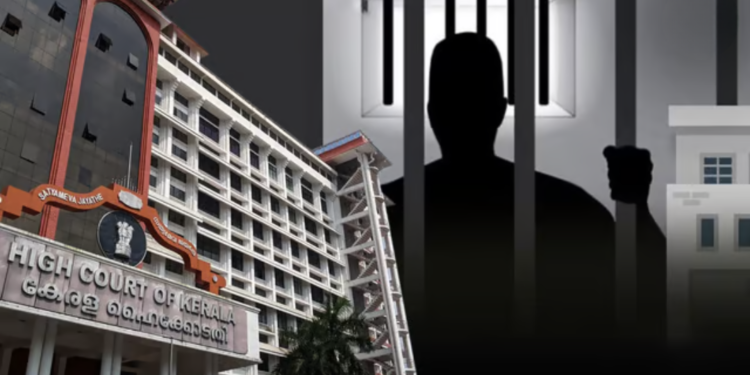The Kerala High Court on Wednesday praised a murder convict for presenting his case from jail via video conference with “skill and flair” [Allen Skariah Thomas @ Allen Thomas @ Cyril v. The Chief Secretary & Ors.].
After reviewing the arguments made by convict Allen Skariah Thomas, single-judge Justice Bechu Kurian Thomas granted him relief by ordering the prison authority to release him on ‘ordinary leave’ as per the law.
“Petitioner himself argued the case online from the Central Prison, with admirable skill and flair,” the Court remarked.
Rule 397 of the Kerala Prisons and Correctional Services (Management) Rules, 2014 governs the grant of ordinary leave to prisoners. According to the rule, ordinary leave should not exceed 15 days per trimester or 30 days per half-year.
The Court instructed the Director General of Prison and Correctional Services to issue orders within two weeks, granting ordinary leave to Thomas as stipulated under Rule 397(b) of the Rules.
Justice Bechu Kurian Thomas
Justice Bechu Kurian Thomas
The Court emphasized the significance of granting leave to convicts, noting that connecting with family and society can reduce the likelihood of reoffending and foster a sense of purpose. This, in turn, can facilitate the convict’s reintegration into society and support their reformation, a key goal of imprisonment. The Court warned that denying ordinary leave for extended periods can undermine these objectives and negatively impact an individual’s behavior.
Thomas was convicted in 2018 for murdering his father and sentenced to life imprisonment. In the six years since, he had never been granted ordinary leave.
Thomas argued that his conduct in prison had been exemplary and that he was being unfairly denied leave. He claimed that vested interests were preventing his leave application from being considered by the Advisory Board.
The Prison Superintendent contended that Thomas had been avoiding prison jobs without valid reasons, which, according to the Kerala Prisons and Correctional Services (Management) Act, 2010, rendered him ineligible for leave. It was also noted that the Prison Advisory Board and the Leave Review Committee had denied his bail based on negative police reports.
However, the Court found the police report to be vague and insufficient as the sole basis for denying ordinary leave. The Court also criticized the subjective approach used to evaluate Thomas’s conduct, stating that ‘good behavior’ should be assessed objectively.
The Court observed that Thomas had no prior criminal record and that the murder was linked to his father’s problematic behavior, including infidelity and domestic violence. Additionally, Thomas had been pursuing higher education and seeking employment during his pre-trial bail period, and no law and order issues had arisen during this time.
The Court concluded that Thomas had been subjected to unfair treatment by being denied ordinary leave based on assumptions and surmises. As a result, it ruled that he was entitled to ordinary leave and directed the Director General of Prisons and Correctional Services to issue the necessary orders within two weeks.
Public Prosecutor P. Narayanan represented the State and prison authorities.

















